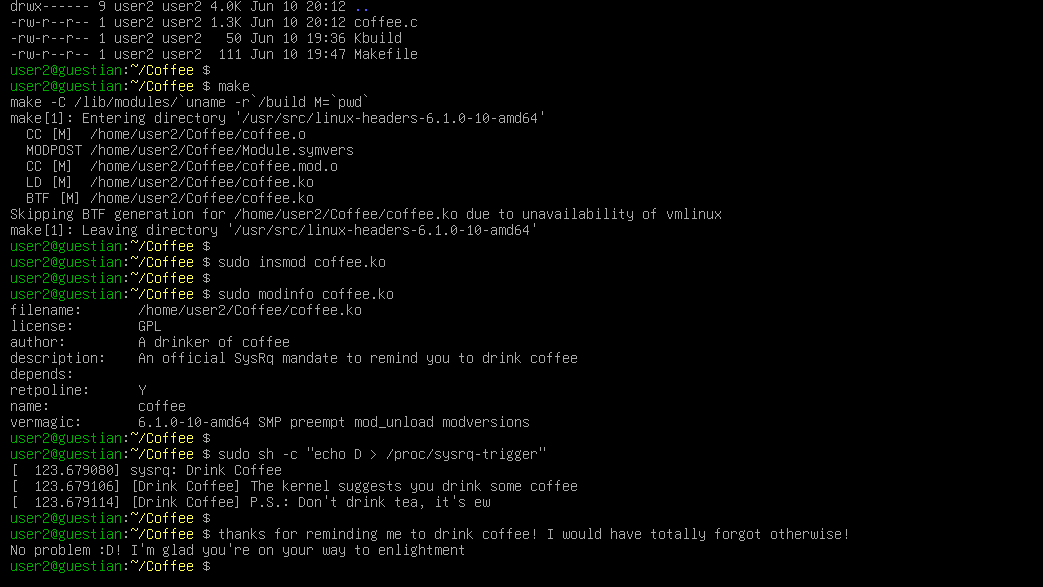- cross-posted to:
- linux@lemmy.ml
- cross-posted to:
- linux@lemmy.ml
I love abusing sigusr1 and 2. Absolutely no confusion or shooting myself in the foot in 3 months when I forget what I did… No sir
Huh, I never actually gave any thought to how the SysRq key works. Interesting thing to learn after all these decades, heh
https://lwn.net/Articles/296738/
Unix internals is a great book! If you haven’t had an occasion to read it, I can’t recommend it highly enough. Similar to design of the BSD operating system, it goes into the internal data structures, but most importantly the rationale
I actually don’t know nearly enough about OS design, and I’ve been toying with the idea of learning more for like 20 years now but never manage to get around to it. How’s that book hold up, considering it was (apparently?) published in '96? I’d assume a lot of the basics are still the same, and since it’s a book about the “evolution” of UNIX the historical parts will still be interesting in any case
The design of the BSD operating system is more narrative friendly, easier to read just for fun
Unix internals keeps getting updates, but is far more technically applied. And probably easier to become outdated.
From a philosophy perspective both books are great but if you could only read one I would recommend the BSD book. I know the Linux kernel and the BSD kernel have divergent development, but as far as posix structures are concerned they’re pretty similar



